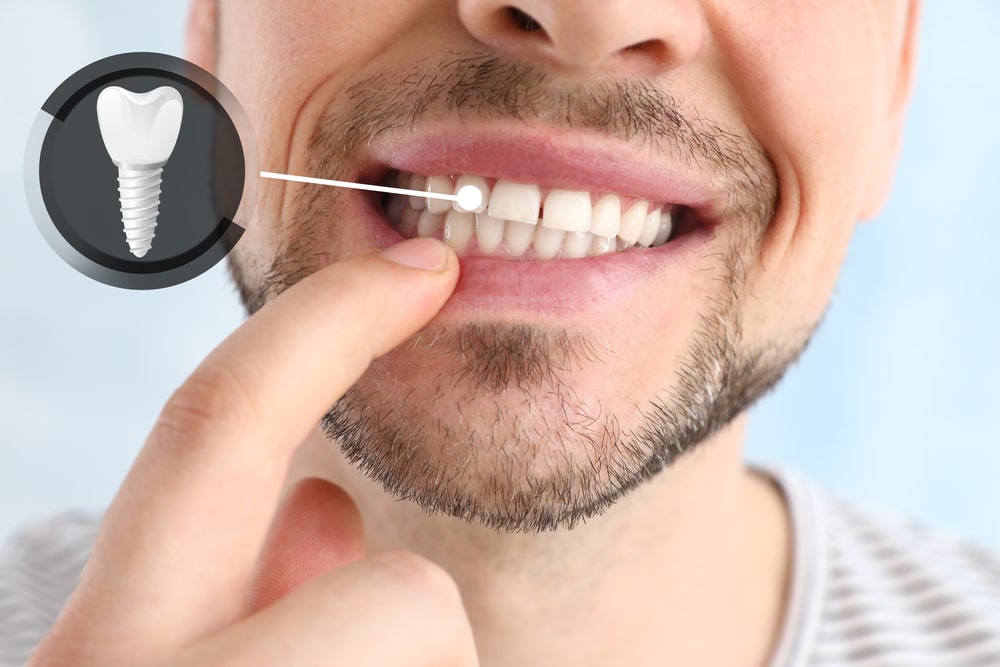What are the Advantages of Dental Implants?
Understanding Dental Implants
How Dental Implants Work
Dental implants ingeniously reproduce the natural mechanism of teeth. Generally made of titanium, a biocompatible material, they are surgically inserted into the jawbone, acting as artificial roots. This bone integration (osseointegration) is crucial for ensuring stability and longevity.
Once in place, implants serve as a foundation for crowns, bridges, or full dentures. These prostheses are firmly attached, creating a functional structure mimicking natural dentition. Precise alignment allows patients to regain efficient chewing and near-normal dental function.
Osseointegration, the fusion of jawbone and implant, is essential for success. Once complete, implants become an integral part of the oral structure, providing a reliable base for prostheses that restore aesthetics and function.
Types of Dental Implants
The world of dental implants offers diverse types to meet specific needs. They are classified by shape, size, and intended use.
Endosseous implants, the most common, are directly fixed in the jawbone and serve as a base for prostheses. Their screw-like design offers exceptional stability, often used to replace single teeth or support bridges and dentures.
Subperiosteal implants are for patients whose jawbone can't support endosseous implants. Placed on top of the bone, they rest on a custom metal framework.
Transosseous implants pass through the jawbone to secure prostheses, sometimes preferred when bone quality or quantity is limited.
Clinical Advantages
Strength and Durability
Dental implants are remarkably strong and durable, providing a long-term solution. Made from biocompatible materials like titanium, they withstand daily stresses. Firm jawbone integration offers stability comparable to, or exceeding, natural teeth. This durability makes them a sound investment, reducing the need for frequent replacements and improving long-term quality of life.
Jawbone Preservation
Jawbone preservation is a significant advantage. Tooth loss leads to bone resorption. Dental implants mimic tooth roots, stimulating the jawbone during chewing, maintaining bone density and preventing loss. This preserves facial structure and avoids undesirable changes in appearance. They support long-term bone health.
EXPRESS QUOTE
Would you like more information?
Your health, our priority.
Request your free quote
Functional Advantages
Improved Chewing
Dental implants significantly improve chewing function. Unlike removable dentures, they offer exceptional stability, reproducing the sensation of chewing with natural teeth. Firm fixation ensures a comfortable and efficient experience, without the movement or slippage of dentures. Patients can enjoy a variety of foods with confidence.
Speak with Confidence
Dental implants restore confidence in daily communication. They offer fluid and natural speech, similar to natural teeth. Firm fixation contributes to precise articulation. Unlike dentures, there's no risk of involuntary movements or clicking, ensuring assurance during conversation.

Social and Psychological Advantages
Impact on Self-Confidence
Dental implants significantly impact self-confidence. Tooth loss can negatively affect self-esteem. Implants offer a durable and aesthetically natural solution, restoring confidence.
Tooth loss often leads to a loss of confidence related to smile appearance. Implants realistically reproduce natural teeth, leading to a full and harmonious smile and improved self-confidence. Individuals regain the comfort of smiling freely and interacting socially with renewed assurance.
Improved Social Interaction
Dental implants improve social interaction. Tooth loss can lead to reluctance to participate socially due to smile appearance concerns. Implants offer an aesthetically natural and stable solution, improving social interaction.
With well-integrated implants, people regain confidence to smile, speak, and laugh in any social situation. The natural appearance eliminates barriers. Individuals feel free to express themselves without concealing an incomplete smile.
This improved social interaction positively impacts overall quality of life. Individuals participate more actively in social, professional, and family activities, strengthening relationships and emotional well-being. Implants promote renewed social interaction, allowing individuals to live fully and fulfillingly.